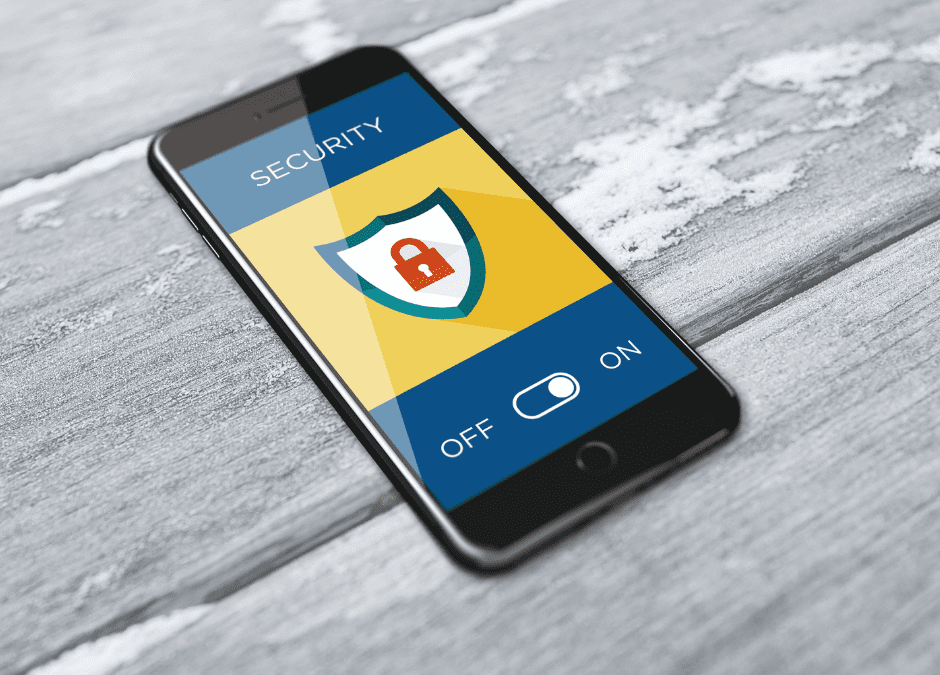10 Cybersecurity Myths Business Owners Can’t Ignore
Ransomware attacks, data breaches, and scams – and let’s toss in a steady stream of extortion and phishing emails for good measure – make the internet a scary place to do business. But do business, we must.
We hear about cybercrime so often that it can quickly turn into white noise. That’s a mistake. As a business owner, you can’t afford to become complacent or allow yourself to be lulled into a false sense of security. Network systems, regardless if you’re a small business or a multinational corporation, are always at risk if you don’t take the proper cybersecurity precautions.
Since safety on the internet is a myth, we’ve compiled some of the most common cybersecurity myths.
Cybersecurity Myths You Need to Stop Believing to Protect Your Business
Here’s hoping you, dear business owner, take them to heart.
1. My Business Doesn’t Have Anything Worth Protecting
You might think your data isn’t worth anything. You might think because you’re not a millionaire or your business doesn’t serve big-money clients that no one cares about your data. You might also think that since you have nothing to hide, there’s no point in protecting your identity or information.
Wrong!
Think about it this way, all those free social media apps you sign up for in reality are not free at all. When you sign the Terms and Conditions – you know, those things most people never bother to read – you’re signing away your right to privacy, which lets the apps build a detailed demographic profile of you.
The companies turn around and sell this information to marketers. That means your information is making these companies millions of dollars. So why wouldn’t hackers and other cybercriminals want to cash in on that?
2. My Business Uses Security Software, So We’re Fine
Many people think cybersecurity software will act as an invincible shield between their data and hackers. That’s another dangerous cybersecurity myth. Hackers still can – and will – find their way through protections put in place.
So what’s an excellent way to protect your business data?
- Keep your operating system software and security software updated.
- Do the same for your other devices, including your phone and tablet.
- Don’t forget about your router. Once hackers break into that, every device using it to connect to the internet is vulnerable.
Lastly, make sure you’re using the right security software for your needs, whether that be for personal use or business. Working with a Managed IT Business guarantees your system meets optimal safety and productivity standards. While offering top-level software, Acme Business also offers a million-dollar insurance policy to every computer protected by us.
(Related reading: Did I Leak My Own Data?)
3. With All These Data Breaches, We Have Nothing Left to Protect
Has your data already been breached? You may feel hopeless, and like there’s no point in protecting your data since it’s already been overtaken. That’s not true.
Don’t roll over and play dead. Don’t surrender!
Different types of data breaches can have different impacts. For example, say your password and username to your bank account have been breached. Don’t give up on protecting your data, inaction only empowers the hackers to pry for even more information.
4. Phishing Scams are Easy to Spot
Phishing scams are becoming more sophisticated as hackers infiltrate companies, CEO’s personal accounts, and even government agencies. Cybercriminals are opportunistic and they thrive on exploiting chaos. Phishing scams have skyrocketed during the COVID-19 pandemic.
Very realistic looking extortion scams are making the rounds. These scams continue to evolve and innovate their tactics daily. It’s not always as simple as an unfamiliar account reaching out to you with bizarre messages trying to get you to click on a link. Sometimes, they use familiar faces against you, which segues nicely to the next myth.
5. My Friends on Social Media Won’t Hurt Me
The great thing about social media is that it connects you with your friends and relatives. Unfortunately, the web of connectivity can be an opening for spiders to turn friends into gateways for data breaches.
Say your friend has a weak password and their account gets breached. Then they send you a private message saying they found a funny new video or a cool new site you should check out. Since the link is coming from a familiar face, your guard may be down. After all, you’re aware of phishing scams when you get a message from someone you’ve never heard of, but you don’t have that on your mind when a friend contacts you.
Hackers bank on those lowered guards to corrupt your web presence and use it as a launch pad for even more data breaches.
6. Hackers are Mysterious, Scary Figures
When you think of a hacker, you probably imagine popular images of hooded figures hunched over a computer. A lot of hackers are regular people and can be hard to spot.
It’s important to realize that hackers aren’t lone wolves. There are entire organizations that work together to infiltrate data and rake in millions. Hacking is also a popular way for mobsters to bring in cash at long distances.
7. We Only Go to Mainstream Sites, So We Don’t Need Security Software
You need security software no matter where you go or how your business operates in the digital realm. The more cookies you have in your browser, the more your every step is being followed.
When multiple sites have a detailed profile of you, that increases your chances of getting your data breached, since all companies are vulnerable to a data breach. Security software keeps you safe. It’s like two-factor authentication: a necessary step towards protecting your privacy. But it’s not enough to just have software protecting against cybersecurity threats. As we said, they must be used and updated regularly.
8. My Business is Safe Because We Use Complex Passwords
Even a long, complicated password isn’t enough to keep you safe in today’s cybersecurity landscape.
Nowadays, there are speedy programs people use to run billions of password combinations, and it only takes a second to run these potential passwords. Not only that, but hackers have sophisticated methods for identifying passwords we use in password creation.
(Helpful hint: Don’t use the same password – or even similar passwords – for all your accounts.)
9. I Know a Fake Voice When I Hear One
Now, this isn’t necessarily a cybersecurity myth, but rather a way for cybercriminals to exploit you and your business digitally. You’ve probably heard that scammers will call you with robotic voices, pretending to be the IRS. They demand money. Maybe you’ve gotten one of these calls yourself. You may think you can recognize a robotic voice, but unfortunately, robocallers are improving their techniques.
New ‘Deepfake’ technology can replicate more than just faces. It’s also expanding into voices. Online programs need only to hear your voice to create a close copy.
10. We Will Know When Something Bad Gets in a Device or Computer
Are you sure you’ll know when a hacker cracks your business network security? Cybercriminals’ work is stealth. They operate in the many unknown shadows, cracks and crevices the digital world provides. When they’re doing their deeds, there’s no red flag that pops up. They have intricate ways of silently infiltrating your data. There could even be Trojan horses in the form of viruses lurking in your code right now.
You Know the Cybersecurity Myths. Now Is Your Business Prepared to Act Accordingly?
Now that you’re aware of the 10 most common cybersecurity myths, you’re better equipped to recognize misinformation spread by hackers who want to keep you vulnerable. Remember, your data is worth a lot to cybercriminals, so be proactive with your cybersecurity and take steps to protect it. Make sure all of your gadgets are up to date with all the security patches needed to fend off online attacks.
Make use of robust security software, password managers and two-factor authentication. Most of all, follow news on recent breaches and hacking trends to keep your security tools reliable and timely.
Request a quote today or contact me at [email protected] for more information on how to protect your business.


Recent Comments